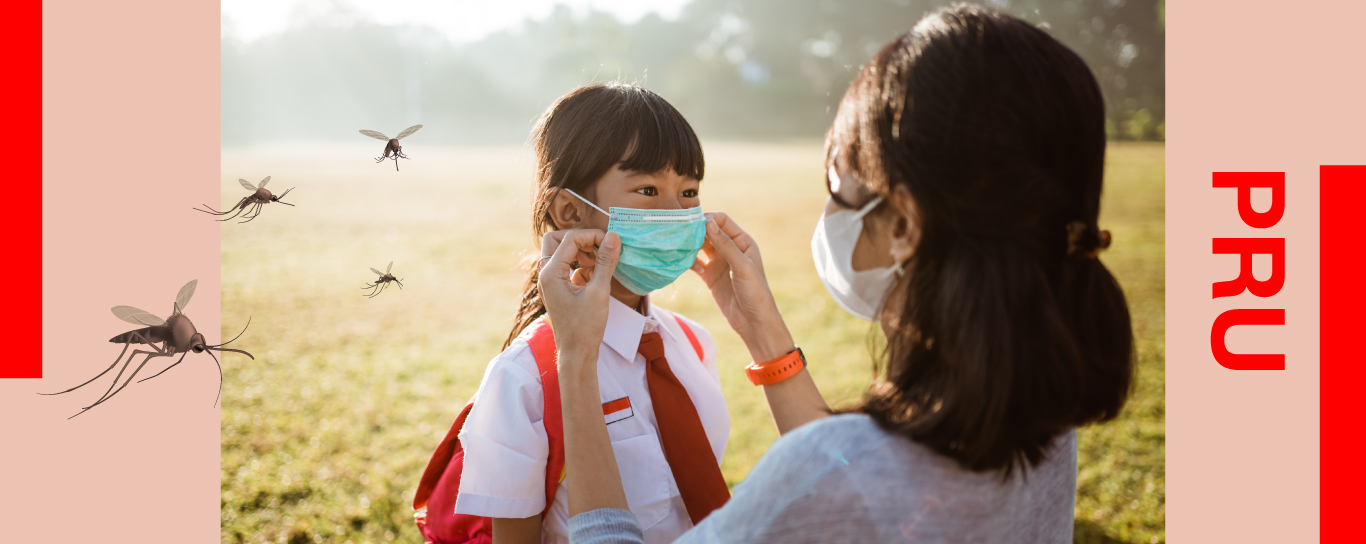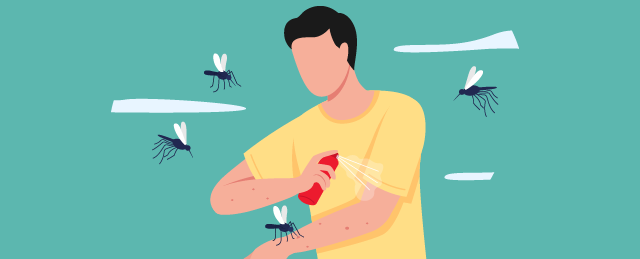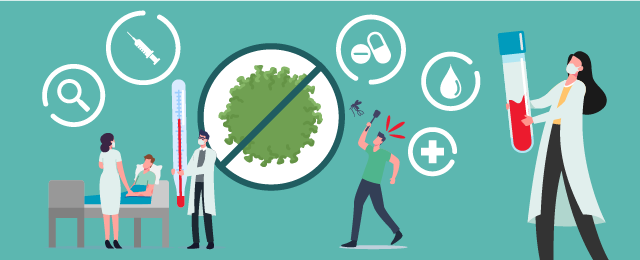
How Does Climate Change Affect Diseases like Malaria, Dengue and Chikungunya?
Written by The Health Aisle Team
Medically reviewed by Dr. Jamal Moloo, MD, MPH
Climate change can have far reaching effects on ecosystems, mosquitoes, and how insects carry diseases and infect humans.
Malaria, dengue and chikungunya are examples of diseases spread by mosquitoes that could spread more in the coming years.
For example, there are 100 million cases of dengue infections every year and 10,000 deaths worldwide. This number is expected to grow. In Southeast Asia, dengue infections increased by almost 50 percent from over 451,000 in 2015 to over 658,000 in 2019. By 2080, 2.25 billion people around the world could be at risk for dengue.

What does climate change have to do with mosquitoes?
Mosquitoes prefer warmer temperatures. Because of global warming, mosquitoes now live outside their native areas. The Asian tiger mosquito (Aedes albopictus), which can carry dengue and chikungunya, is found in many northern areas where it didn’t exist before.
Warmer temperatures shorten how long it takes for a mosquito to become an adult that can bite, pick up a disease, and pass a disease to humans. Warmer temperatures can also speed up the time it takes for a mosquito to become infected after it picks up a disease.
Some mosquitoes are not able to live in climates that are too hot so some regions may not see disease spread.
What is important to know?
Many diseases exist where they did not before. In areas where certain diseases already exist, there may be more mosquitoes carrying disease, infecting more people. Epidemics and outbreaks can increase in regions with more people getting diseases like malaria, dengue and chikungunya.
When travelling, you should be aware of the diseases that may exist in the region. This is especially important if you do not have immunity — you should think about protection and treatment.
What can you do?
You can protect yourself from mosquitoes and other insects like ticks and flies by:
-
using mosquito bed nets;
-
wearing clothing that covers most of your body, especially at dawn and dusk;
-
talking to a healthcare professional or public health clinic about the best insect repellent for the region, because there are high levels of resistance to certain insecticides in different places; and
-
talking to your doctor about vaccines to protect yourself. There is growing research on vaccines for some of these diseases.
Also, it is important to think about how you might be contributing to climate change through use of energy, transportation, and travel. You can make a positive change through awareness of your impact on the environment and the effect it has for many years to come!
References:
-
Derouin, S. (2017, May 3). What a warming planet means for mosquito-borne diseases. Stanford Earth Matters. https://earth.stanford.edu/news/what-warming-planet-means-mosquito-borne-diseases#gs.v4hdrc
-
Messina, J. P., Brady, O. J., Golding, N.et al. (2019). The current and future global distribution and population at risk of dengue. Nature Microbiology, 4, 1508–1515. https://doi.org/10.1038/s41564-019-0476-8
-
World Health Organization. (n.d.). Dengue in the South-East Asia [sic]. https://www.who.int/southeastasia/health-topics/dengue-and-severe-dengue
-
Rocklöv, J., & Dubrow, R. (2020). Climate change: an enduring challenge for vector-borne disease prevention and control. Nature Immunology, 21, 479–483. https://doi.org/10.1038/s41590-020-0648-y
-
World Health Organization. (2020, March 2). Vector-borne diseases. https://www.who.int/news-room/fact-sheets/detail/vector-borne-diseases
-
Mordecai, E. A., Ryan, S. J., Caldwell, J. M., Shah, M. M., & LaBeaud, A. D. (2020). Climate change could shift disease burden from malaria to arboviruses in Africa. The Lancet. Planetary health, 4(9), e416–e423. https://doi.org/10.1016/S2542-5196(20)30178-9
-
World Health Organization. (2020, September 15). Chikungunya. https://www.who.int/news-room/fact-sheets/detail/chikungunya


